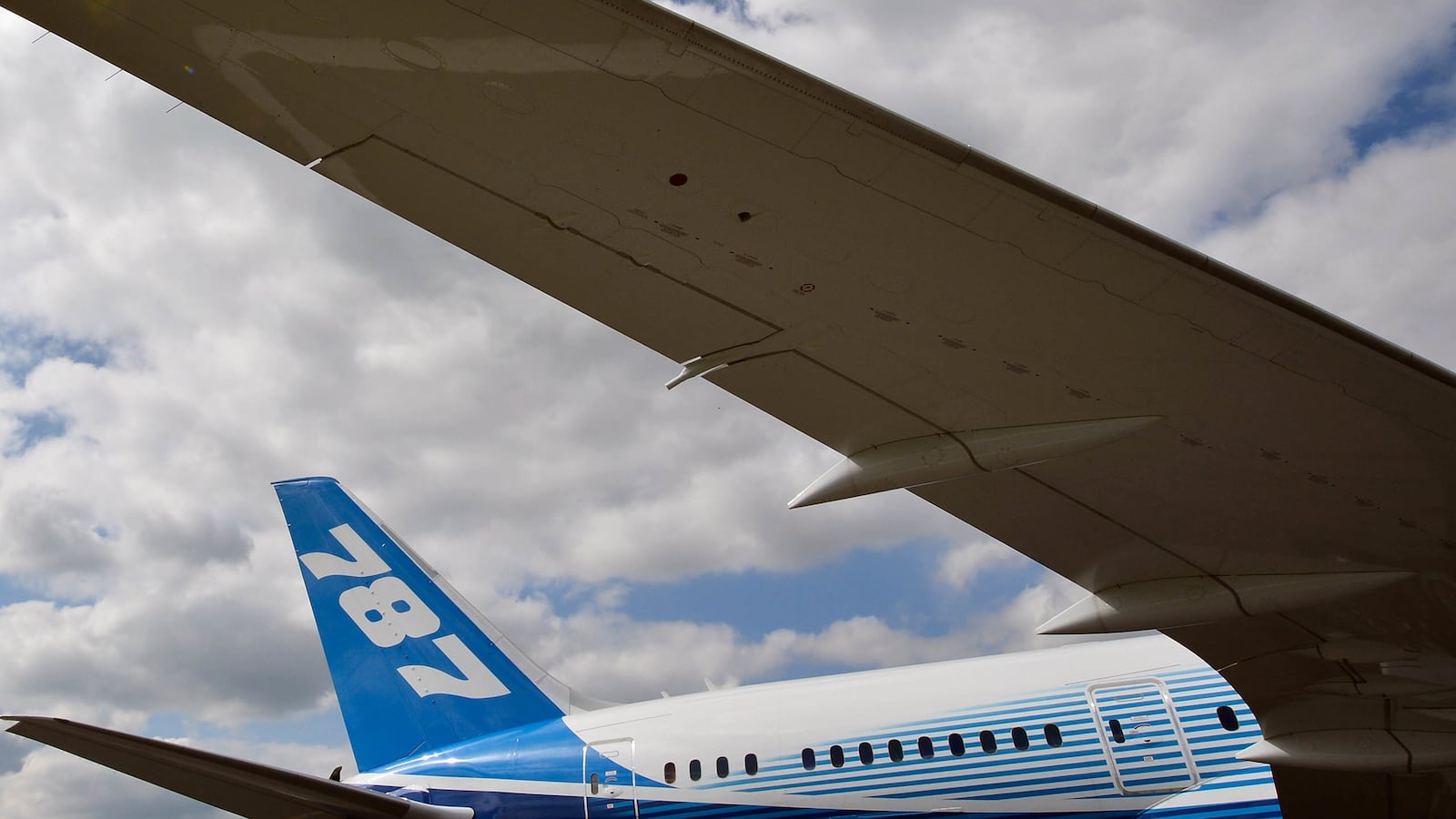Boeing’s 787 Dreamliner isn’t the only thing going down when it’s not supposed to. Boeing’s stock is down too. On Wednesday, the stock of the mammoth aircraft manufacturer fell about 3.4 percent to 74.34. While this might not seem like a lot, it’s worth watching. After all, Boeing has outsize symbolic and actual importance to the U.S. economy.

For one, it’s one of the 30 companies included in the Dow Jones industrial average. So the gyrations of its $56 billion market capitalization have an outsize importance on the psyches of the CNBC-watching masses.
Boeing is also a huge employer. As of last summer, Boeing had more than 142,000 employees—just more than 85,000 in Washington State alone—in the United States.
And year in and year out, Boeing retains the title of America’s largest exporter. Planes are very expensive objects, and Boeing sells a lot of them to foreigners. The company’s $68 billion revenue in 2011 was nearly exactly split between U.S. and overseas, with $4.8 billion of sales to China, $5.5 billion of sales to the Middle East (Boeing doesn’t just make commercial airplanes, it’s a massive defense contractor), and $9.9 billion in sales to Europe. Since 2009, its annual overseas revenues have gone up $5.5 billion while U.S. revenues have gone up by just under $500 million. If we want more exports, especially manufacturing exports—and that’s an explicit policy goal of the Obama administration—Boeing is going to have to be a huge player.
In 2011, the U.S. exported $1.48 trillion worth of goods; $80 billion of that was in parts and engines for civilian aircraft. Individual aircraft orders are so high value and can be so variable month-to-month that when analysts look for trends of capital-goods orders, they often exclude aircraft.
Also, large manufacturing companies support huge amounts of indirect employment—suppliers, truck drivers, rail operators, and so on. So their successes and failures have outsize importance on employment compared with companies that may have larger revenues. In Washington state alone, Boeing estimates that it supports just under another 44,000 jobs besides the 85,000 it directly employs.
If the Dreamliner encounters significant turbulence, so too could America’s efforts to maintain high-end manufacturing.






